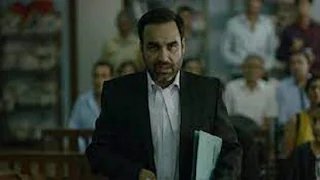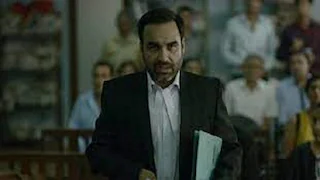The third season of Criminal Justice is as ineffective as it overly reliant on Tripathi to pull a rabbit out of the hat. The problem is, he is running out of hats
Criminal Justice Season 3 review: Pankaj Tripathi cannot save this tired old yarn

In a scene from the third season of Disney+Hotstar’s Criminal Justice, Madhav Mishra played by the always likeable Pankaj Tripathi tells a desperate client “Jese apne kaha ki paison ki chinta matt kijiye, main keh raha hun aap case ki chinta matt kijiye”. Mishra is coy, even devious at times but in a charming way. His outlook of justice has less to do with the grandiosity of victory and more to do with the potential of opportunity. Tripathi has held together and possibly injected life, time and again, into a franchise that has quite literally stood on his shoulders the second season onwards. In its third season however, Criminal Justice feels flaky, a bland, unconvincing repetition of the first season almost stumbling across a story without conviction or sight of its destination. Unfortunately, this time around even Tripathi can’t act as saviour.
The third season follows the story of Zara, a pre-teen TV star who mysteriously goes missing on a family trip and is then found dead. Zara has a teenage older brother in Mukul, who is apparently also suffering from an Oedipus like sibling complex. Under the shadow of an illustrious sister Mukul feels unseen, often underappreciated. Both children have doting parents in Niraj played by the decent Purab Kohli and Avantika played by Swastika Mukherjee. Like any elite family the Ahujass are fairly resplendent on the eye and equally galling to witness behind the patina of morality. Zara’s death shakes the family, and all clues lead to Mukul, the angry, risible teenager who is trying hard not to help himself. As fate would have it the Ahujas don’t even have the money for a good lawyer, and so in steps our protagonist and the saviour of mediocre material, Pankaj Tripathi.
Though this current season shifts its focus to the juvenile justice system, it feels, more or less an echo of the first season. Templated similar to the original, there is a seemingly indefensible accused, who undergoes some sort of hairy transformation behind bars, while on the outside, a pesky, street-smart lawyer goes about fighting his case from the insides of a multi-purpose omni van. Even though it feels like a pale imitation of its own previous trajectory, this third season drags, as most things done for the sake of stretching a worn franchise do. The performances are rubbery, almost ineffective. Even assured actors like Kohli and Mukherjee are given precious little to work with. There are structural complexities, like both siblings having different fathers, thrown into the mixer but they hardly earn their reckoning.
This third season is also vastly let down by a flashy, almost insincere portrayal of young teenagers. The young actors are unconvincing, and even in trying to play flawed children that are hard to adore these actors are forgettable. A major reason why the first two seasons still quite managed to get over the line was because of the decent performances put in by Vikrant Massey and Kriti Kulhari. Here there is nothing to write home about in roles that are not only terribly conceived, but also performed with the lofty craftsmanship of youngsters who simply don’t possess the craft and evidently haven’t been supplied with the direction either. This age of streaming has given us some terrific performances by unsung, young actors (like in Hotstar’s own Aarya) but here the kids neither flatter, nor deceive.
Moreover, the show doesn’t even know how to use its linchpins, the acting heavyweights it has almost always relied on to drag material that has never really hit the high notes of inspiration or intrigue. Purab Kohli is wasted, Mukherjee undermined and the difficult cross-maternal dynamics teased as a matter of structure, rarely delivers beyond being present in the flesh. There is absolutely no soul to write of here. The other problem with this current season is just how lethargic it is about handing things over to Tripathi. It takes a whole lot of uninteresting time, and even as a narrative technique far too much lazy drama precedes the mystery that must get the show moving. It’s ponderous, poorly imagined and ultimately pointless.
You have to wonder just how long can Tripathi continue to bail mediocre material. He is likeable again, but a tad repetitive. In roles, like the one of Madhav Mishra, he has started to resemble his true self, the person we witness in mesmerising interviews and chats. It’s a worrying sign perhaps when writers and directors want to import Tripathi into a show rather than inject in his veins the mannerisms of a character they themselves might have imagined. Here there is overlap between the two, which is perhaps a tell-tale sign of a role that has run its course having arrived at the point where Tripathi could and possibly is phoning it in for no fault of his own.



